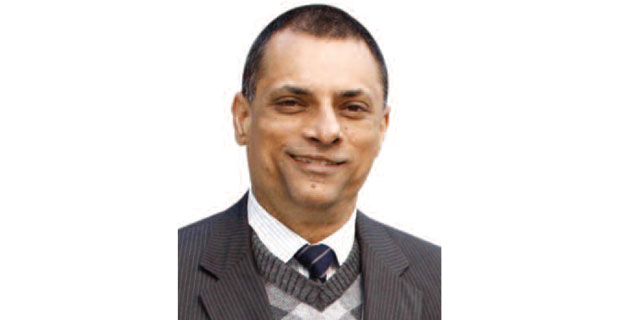Editor’s Desk
The future is green energy, sustainability, renewable energy.
--Arnold Schwarzenegger
In the early years of the 21st century, Arnold Schwarzenegger was listed as one of the 100 most influential people in the world by Time magazine. His words on sustainability, though, make more sense today—i.e. in the third decade of this century—than any time before.
These are unprecedented times. The largely isolated and faraway continent of Antarctica, for instance, is losing ice sheets at the rate of knots, a staggering 150 billion tons every year due to melting. At the opposite end of the pole, Greenland is losing an astounding 270 billion tons per year.
The pace of deforestation is overwhelming. According to UN-FAO estimates, around 10 million hectares of forest each year—about the size of Portugal—are being lost to untamed greed, mostly a higher production of coffee and cocoa, red meat, and, of course, paper. Even after taking into account the reforestation that takes place, 5 million hectares of forests are lost annually, the reason why temperatures and ice sheet melting are going up at such a rapid pace. Across human habitations there is an uncontrolled spike in consumer-driven industrial and deforestation activities that have wreaked havoc on the earth’s climate and caused long-term environmental and ecological damage. We’ve perhaps lost the moral high ground to preach our children about conservation.
This is where knowledge-driven global think tanks such as The Energy and Resources Institute (TERI) step in to play a crucial role. From the time TERI was established as a documentation and information centre in 1974 by the then Tata group chairman J R D Tata, it has logged several impressive milestones, four of them quite recently. In 2022, the World Economic Forum chose TERI as one of 13 innovative organizations in the world working towards conserving and restoring India’s forest landscapes. In 2022 and earlier in 2018, Prime Minister Mr Narendra Modi inaugurated separate editions of the World Sustainable Development Summit—the prestigious annual flagship event of TERI. In 2022, President of the European Commission, Ms Ursula von der Leyen, visited the organization’s field station—TERI Gram, holding discussions with young scholars and students on the decisive shift needed towards sustainable living.
In our cover interview, Dr Vibha Dhawan, Director General of TERI, talks about her organization’s overarching vision for the world that enhances sustainable inputs, promotes resource use efficiency, mitigates environmental and climate impact, improves access to basic services, scales and advances resource-efficient waste management solutions. Don’t miss out on the TERI milestones that follow.
In the last issue we had a special segment on Africa with key interviews with three heads of missions. We continue to build on that momentum and have featured two more beautiful African nations—Zambia and Tanzania. We also have a write-up on Costa Rica, a very pretty destination in Central America.
Besides, we remain the only magazine published out of India that has systematically focused on the Indian Diaspora for 19 years now. In this issue too there are a range of stories that are in line with our engaging Diaspora coverage. Hope you are able to go through the magazine at leisure and send us your feedback.
Sayantan Chakravarty
sayantanc@gmail.com











Comments.